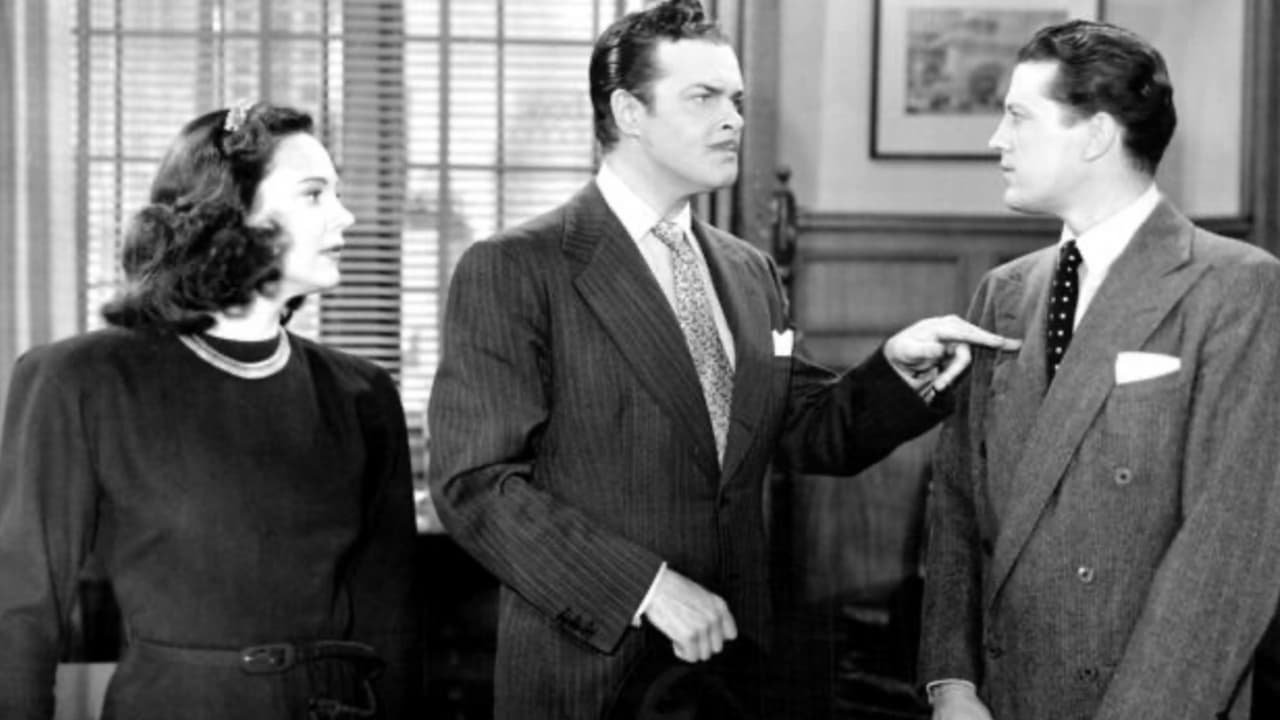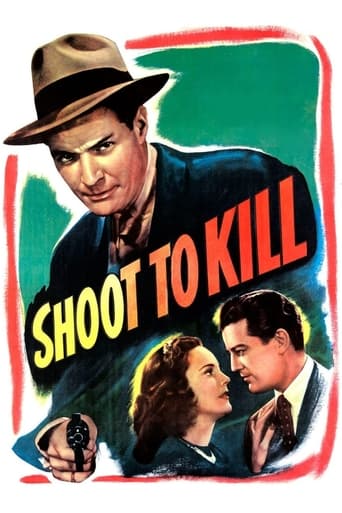


Plot-- A woman injured in a car crash that's killed her two companions relates her story in flashback to a reporter. It concerns a corrupt Asst. DA, an escaped convict, plus competing racketeers, all of which leads to murder.No one expects Oscar bait from the likes of poverty row Lippert. But as 40's thick ear, this is a pretty good one. The characters are more than one dimensional, the photography often imaginative, along with a lightning bit of jazz piano from Bob Rogers whose fingers defy gravity. Russell Wade may get top billing, but it's really Edmond MacDonald's movie. His Assistant DA may be a heckuva schemer, yet he gets pushed around as much as he does the pushing. Seems like no one's in control of much of anything, a nice departure from the usual. In fact, the only uncompromised character, reporter Mitch (Wade), is only incidental to the plot. It's not goodies vs. baddies; it's mainly clashes of self-interest getting thrashed out. Yes, the twists, turns, and pop-up names are sometimes hard to follow. Then too, I'll be darned if I know why a guy (Mitch) or gal goes walking alone in the woods at night, especially when they hear noises. Still, the effect's a perennial nail-biter. Anyway, pedestrian director Berke distinguishes himself from his usual, while the battery of craftsmen doing the visuals also come through. All in all, the results are better than expected from the likes of Lippert and an obscure cast of principals.
... View MoreThis is a cheap Lippert b-movie that overachieves its budget with such little extras as a great piano player, the solid Charles Trowbridge as a D.A., and some flashes of good cinematography. Taught with constant danger, it is sort of a hodgepodge of flashbacks, confusing plot twists and fast pace. The way it just keeps relentlessly forging ahead keeps you interested enough to see what happens next.Russell Wade, a nice guy type on-screen and off, is perfectly cast as the crusading newsman. Susan Walters, 35-ish veteran actress and no young piece of fluff, is convincingly hard as a strong-willed woman with big ideas. The villains are numerous (almost everybody is a villain) and are all well cast.Despite the flaws that are very well set forth by other reviewers in this section (probably better than I could recount them) this movie somehow kept me entertained, if a bit confused at times. So yes, it is possible to make a fairly satisfying film on a shoestring budget. That is the bottom line on "Shoot to Kill".
... View MoreThis has to be one of the corniest noirs to hit the screen. For the most part it was incomprehensible with the plot careening one way and then the other. The characters all spoke in a monotone advancing whatever was discernible about the plot by announcing their motives and plans. The dialog was made of one cliché after another suitably punctuated for effect such as when Walters (Luana Walters that is, here credited as Susan) announces to her husband Dixie Logan "Even if you were framed I know now that you're ROTten" (emphasis on ROT). Every character has his/her own agenda and proceeds to implement it with gusto without a care for their safety. Allegiances are formed and dissolved at lightening speed - nobody seems to be aware of the concept of loyalty. Without the score the viewer would be even more confused. At least it announced when something of interest was about to happen.If all this makes "Shoot to Kill" seem like a turkey you wouldn't be far off the mark. It's so corny it's actually kind of funny, in a desperate sort of way. After a while you begin to wander what else they're going to throw in the mix. But it has its good points. There's a neat fistfight on a staircase, supposedly down two flights of stairs although I suspect it was filmed on the same one flight with the protagonists starting over at the top. Along with the fists so did the railings and I began to wonder whether it wouldn't collapse. On their budget they'd have to keep the footage. Punches and slaps were thrown that seemed to connect, especially the one on Walters toward the end. She disappears off camera falling down only to bounce back up unperturbed to deliver her memorable line quoted in the previous paragraph.The real revelation is pianist Gene Rodgers who appears 9:30 into the movie. Previously unknown to me, he was magic, a god of boogie jazz. He plays two of his own compositions, "Ballad of the Bayou" and "Rajah's Blues", both unaccompanied pieces. A little research revealed that he was based in LA at the time the movie was shot and returned to NY where he lived and worked the rest of his life. He died in '87. If for no other reason see this film for Rodgers.
... View MoreThis cheapie noir thriller about crooked district attorneys and gangster chiefs is surprisingly good, considered it was made on a zero budget with no reason to aim high. Of course, it is completely corny, but there are a lot of expressionistic camera angles, and the many dollying shots of men walking at night are surprisingly effective with a single bright spotlight on the face and everything else pitch black. As is usual with these over the top late forties cheapies, the impact depends largely upon an excessive, almost parodic, use of 'mood music'. When things begin to get dangerous, don't worry about looking for clues on the screen, as the orchestra will tell us instead. One wonders if the script actually said: 'At this point, the musical score will become hysterical, so that the audience knows someone is about to get killed.' The chief reason for watching this film is to see and hear the spectacular performance on the piano of Gene Rodgers, a black boogie player who was one of the best. It is jaw-dropping stuff. Fats Waller, eat your heart out! Rodgers plays two of his own compositions, 'Ballad of the Bayou' and 'Rajah's Blues'. His fingers move faster than the speed of light, and he isn't even looking. If only the whole thing had been Rodgers, we could have done without the film. The film's script is surprising in its ingenuity in places, and has some snappy dialogue, showing that somebody tried. The most innovative scene is where an assistant district attorney dictates a letter to his secretary. It is a passionate love letter proposing marriage, and she wonders to whom he intends to send it. He asks her if she thinks it is OK, and she says she thinks it is beautiful. Then he tells her it is for her! Great scene! If only the romance had been genuine, however, as both turn out to be crooks in their own way. This film contains serious contradictions, as it oscillates between making some characters appear sympathetic and then suddenly exposing them as baddies. The story must have started out as a tough crime thriller and then some frustrated sentimentalist wrote the script and could not help himself, he just had to have some love scenes, and the fact that the characters were all wrong for this could not and would not deter him. The producer clearly didn't notice. Well, if you like brilliant boogie, you really can't afford to miss this. And there will be people who will also enjoy the film. It is all a matter of what you expect, and if you start out expecting a corny mini-budgeted noir thriller with some unexpected good points, you will be happy.
... View More